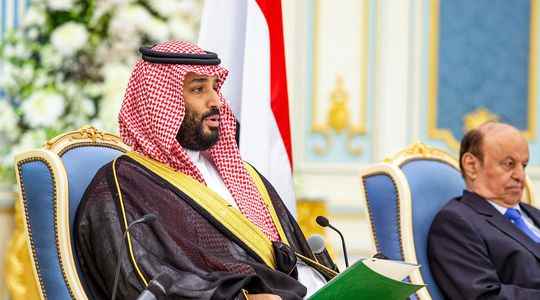The road to peace between Israel and Saudi Arabia passes through two desert islands in the Red Sea, popular with divers. Sanafir and Tiran are two strategic stones entrusted by Riyadh to Egypt in 1950, and which Cairo now wishes to return to the Saudi kingdom as a sign of good relations.
But the two Arab countries need Israel’s agreement – in the name of a 1979 peace treaty that gives the Jewish state control over the two islands. Jerusalem is expected to give the green light, probably next month, when Joe Biden visits the region. The gesture does not look like much, but it represents a crucial step towards the normalization of relations between Riyadh, guardian of the holy places of Islam, Mecca and Medina, and the state with a Jewish majority.
An already flourishing business between the two countries
Out of support for the Palestinian cause, Saudi leaders have still not recognized the existence of Israel. But in recent years, a revolution has started with the 2020 Abraham Accords and the formalization of relations between Israel, Bahrain and the United Arab Emirates. “Bahrain is the gateway to Saudi Arabia, and if the Saudis have agreed to this normalization with Israel, it means that they too are ready to go further, poses Henrique Cymerman, the first Israeli journalist to having visited the Wahhabi kingdom. There are already many Israeli companies in Saudi Arabia, under the flag of other countries, but everyone there knows their identity.”
Riyadh was very close to taking the step of normalization in 2020, when the Trump administration pushed its Gulf allies to sign with Israel. “We had a lot of discussions with the Saudis at the time and I am convinced that they will join the Abraham Accords one day, said American diplomat Robert Greenway, in charge of Middle East policy under Donald Trump. It’s more about whether it will happen, but when.”
On the side of Israel, everyone is aware of the importance of such an alliance. “Saudi Arabia is my dream and the dream of all Israeli leaders, regardless of their political orientation, underlines centrist MP Ruth Wasserman Lande. Having this country on our side would send the message to the entire Muslim world. , or almost two billion people, that Israel is a legitimate country. We would be the official husband, and not just a secret lover.”
The first stone of a “Middle East NATO” against Iran?
For the Israeli economy and diplomacy, the benefits would be major. “Not to mention that it would be the first stone of a common security structure against the enemies of Israel and the Gulf countries, that is to say Iran and the jihadist movements, completes Henrique Cymerman. The Arab countries are obsessed with Iran, and complain that they are less well protected than Israel against these threats. In this context, a NATO in the Middle East becomes possible…”
In addition to fear of Iran, this rapprochement also stems from a generational change among Saudi leaders. Crown Prince Mohammed bin Salman has extended his control over the country in recent years and intends to usher it into a new era. At 36, MBS favors geopolitical realism over ideology. “On Israel, there is a generational schism between the king and the crown prince, argues Emmanuel Navon, professor of international relations at Tel Aviv University. MBS is ready to cross the Rubicon, but the question of the Palestinians remains a priority for King Salman.”
In March, the crown prince explained to the American magazine The Atlantic that he considered the Israelis to be “allies”, a hardly believable first for a Saudi leader and a way of gauging the internal reactions to this rapprochement. The Palestinian cause remains essential for the Arab populations, much more than for their leaders. “For the Saudi power, normalization with Israel will have a price in terms of image, warns Emmanuel Navon. In return, they expect considerable guarantees, in particular from the United States.” Two desert islands would be a good start.
